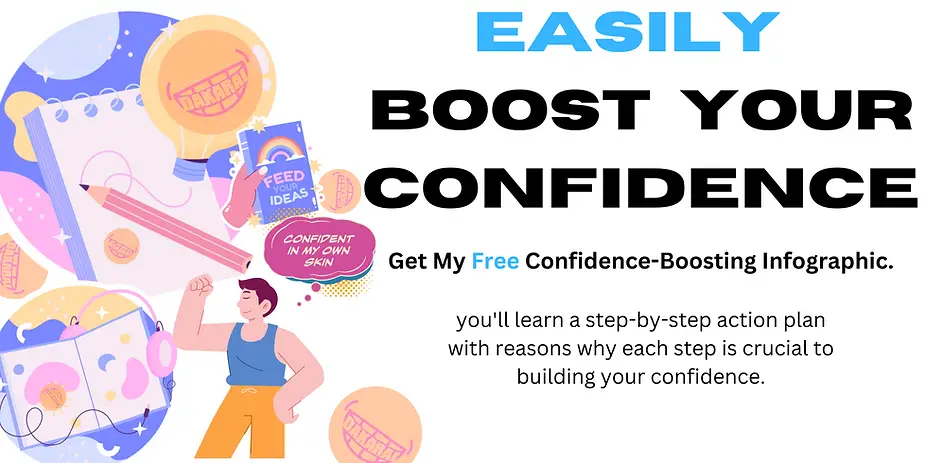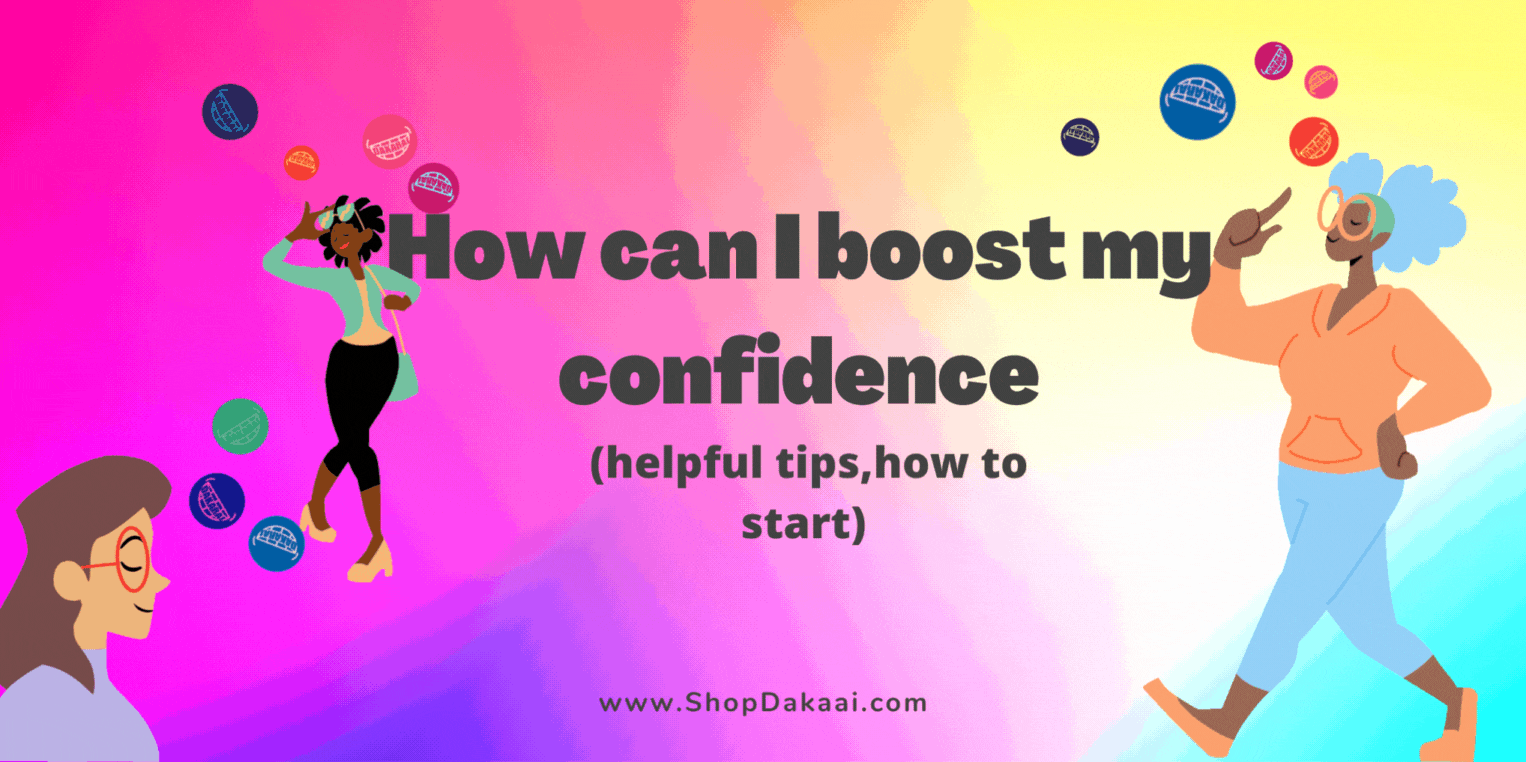
You implement positive healthy habits into your daily routine to boost your confidence.
You must consider many factors to boost your confidence,so I did my own research and compiled a list of confidence boosters to help you.
You can boost your confidence by implementing positive habits into your daily routine.
Implementing practices like creating a positive mindset by using positive self-talk, adapting to your setbacks,
surrounding yourself in an inspirational environment, and valuing yourself are all practices that can boost your confidence.(source)
If you want to check out the best books to help you boost your confidence, you can find them by clicking here. 15 Best Books On Confidence & Self-Esteem In 2023
Improve Your Mindset
You must believe in your ability to improve. Imagine your success before your challenge begins.
Focus on what you have already achieved. Remember, all problems have solutions, and you can gain the knowledge to find them.
Setbacks are only temporary, so find a way or make one.
You’re in control of your choices and how you respond to each setback. It’s important to stay positive.
If you’re bitter or focused on all of your failures, you won’t be able to move forward.
Surround yourself with happy people who motivate you and help you appreciate life.
Negative and discouraging people will make it harder for you to keep a positive mindset.
Most of what we create has started in our minds and thoughts. You must realize that the challenge ahead will not be easy, and you’ll make mistakes.
But most importantly, remember to persevere to achieve your goals and to interpret feedback the way you choose.
Check out this monthly program. I recommend that will go into greater detail to help you develop a positive mindset in various ways. Maxi mindset Tool
, in addition 15 Ways To Improve And Develop A Great Mindset will greatly assist you in selecting the right habits for your needs.
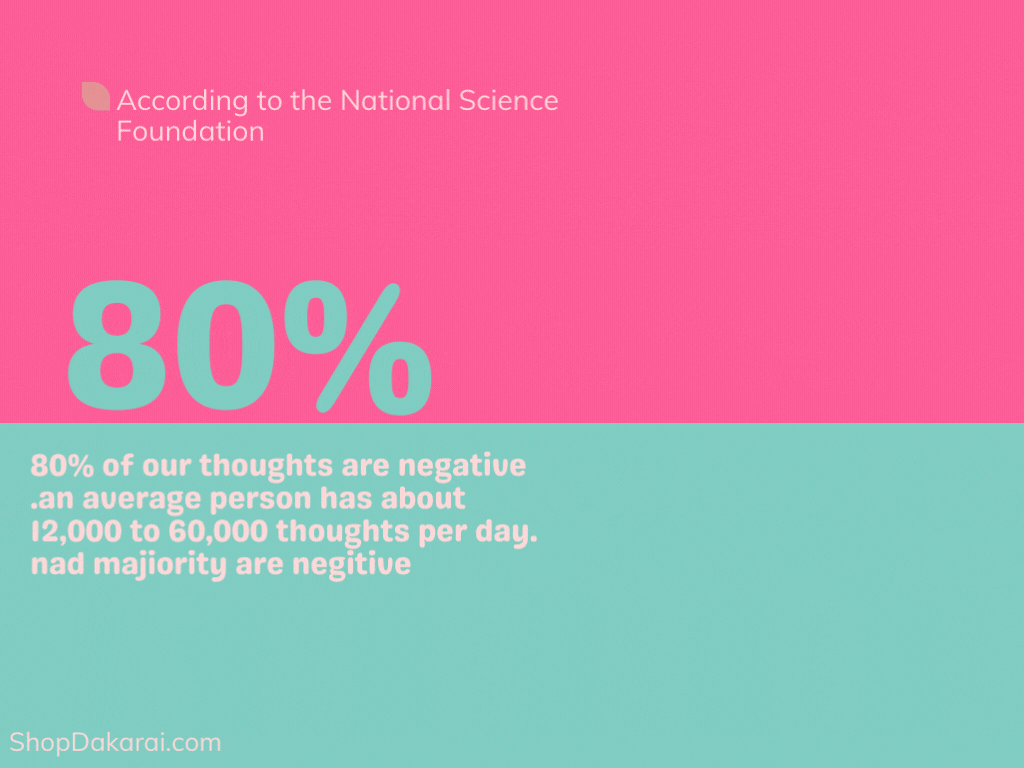
Practice Positive Self Talk
Your inner dialogue, also known as self-talk is all your inner thoughts, beliefs, questions, and ideas.
which can be encouraging and also be harmful. A positive outlook in challenging situations can help you manage your future stress and boost your confidence.
Furthermore, you can alter your mindset by strategically putting up affirmations and mantras to stay optimistic around your house and workplace.
These mantras will serve as a visual reminder for you to stay happy. Here are some examples of positive self-talk.
And if you’re interested in learning more about positive self-talk, hold up for a bit.
I wrote an article all about how to develop and practice beneficial positive self-talk,which I encourage you to read
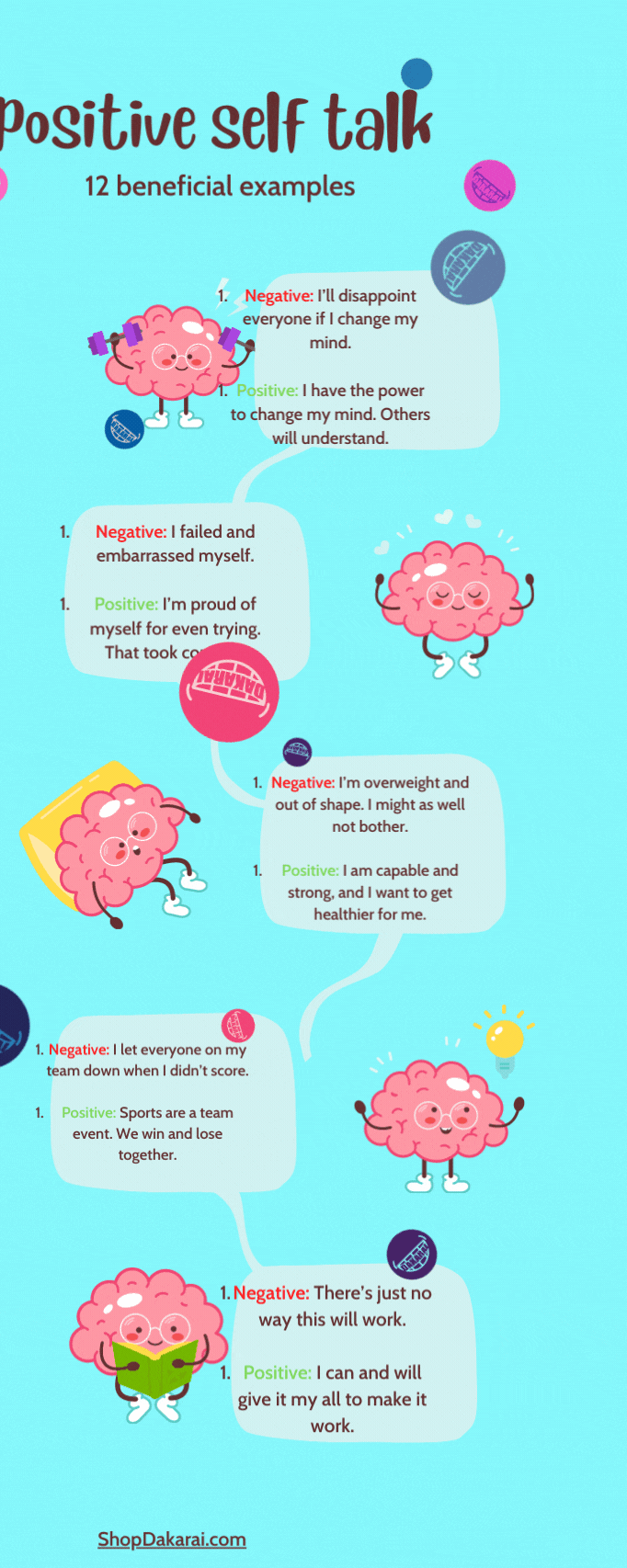
- Negative: I’ll disappoint everyone if I change my mind.
- Positive: I have the power to change my mind. Others will understand.
- Negative: I failed and embarrassed myself.
- Positive: I’m proud of myself for even trying. That took courage.
- Negative: I’m overweight and out of shape. I might as well not bother.
- Positive: I am capable and strong, and I want to get healthier for myself.
- Negative: I let everyone on my team down when I didn’t score.
- Positive: Sports are a team event. We win and lose together.
- Negative: I’ve never done this before and I’ll be bad at it.
- Positive: This is a beautiful opportunity for me to learn from others and grow.
- Negative: There’s just no way this will work.
- Positive: I can and will do my best to make it work.
Surround Yourself In Positive Environments
Surrounding yourself with supportive, positive, and like-minded people that will encourage you to persevere is a big part of boosting your confidence.
Creating an environment where you’re inspired and motivated to be your best self and removing negativity can boost your confidence.
Hanging out with miserable, unhappy people will weigh you down, preventing your focus from becoming a better person.
More information about the additional benefits and values of surrounding yourself with positive, like-minded people can be found here.
Adapt To Your Setbacks
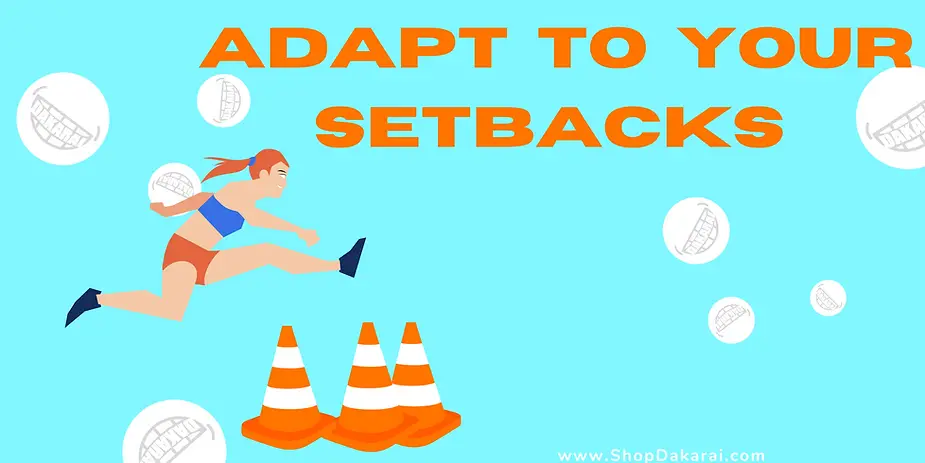
The ability to adapt to these situations and emerge from them defines our “resilience” and boosts confidence.
What makes us “resilient” and gives us confidence in our capacity to withstand these challenges and come out on the other side?
We all experience setbacks that affect us at different points throughout our lives. For many, while these experiences can be difficult,
they emerge from them stronger, better able to cope with the setbacks.
Even though these experiences can be challenging, many become stronger and better able to handle these setbacks and be better prepared for the future.
The ability to adapt to these situations and emerge from them defines our “resilience .”With Facing recurring failure,
you must learn to keep trying and persevere.
Learn to respond to your setbacks creatively and constructively to help you achieve your goal.
Ask for help and learn different strategies to overcome your obstacles.
You can find a list of what to look for in a setback as well as questions to ask yourself to learn from them. in this guide on How To Handle Setbacks And Learn From Them.
Value Yourself
The relationship you have with yourself shapes virtually every aspect of your life, Your wellbeing, relationships,
and how you see and experience the world. Valuing who you are and what you stand for can boost your confidence majorly.
Stop worrying about how people perceive you. Don’t place your value in external traits such as hair, skin, or body traits.
When you value yourself, you believe you deserve respect, love,
and success and are willing to invest your time and energy into bettering yourself and working towards your goals.
Valuing yourself can help you acknowledge your accomplishments, boosting your confidence in knowing you’ve reached your goal.
In fact, there are numerous other habits that can assist you in discovering your self-worth. Here are 9 Helpful Habits to Help You Find Your Self-Worth.
Help A Stranger

Another great way to boost your confidence is to help someone else.
Knowing that you’ve helped make someone else’s day can improve your mood and increase your confidence.
Doing something as simple as paying for a stranger’s Starbucks can lower your distress, make you feel better about yourself, and boost your confidence.
I understand Talking with strangers can, for many, be quite uncomfortable and even anxious producing It might be dangerous for some people.
But if we can overcome our anxieties about talking to strangers, we may find that the benefits are more prosperous than we imagined.
However, if we can get past our fears of interacting with new people,
we might discover that the rewards are greater than we had anticipated.
So, after doing some research, I’ve compiled a short list of ways to lend a hand to a stranger.
Smile
Something as simple as A simple smile can brighten someone’s day and turn a crummy day around.
Someone’s day can be made better with a simple smile, even on a bad day.
Leave A Tip
Sometimes people can work a demanding job and something as simple as leaving a big tip,
as I figure a little extra money never hurts anyone. You never know how much a person’s life might change if you gave them $10, $20, or more.
Hold a door
I know this one sounds simple, but I can’t tell you how many times someone holding the door for me brought a smile.
Holding doors for parents with children/strollers, those in wheelchairs/scooters, and people with arms full,
I always love to see someone approaching a door, and I wait to hold it open for them.
Give a helping hand
Whether it’s just helping cover someone’s local bus fare, or even covering someone’s coffee tab.
Whether it’s a small gesture like paying for someone’s local bus fare or even their coffee bill.
Donate Something
It could be books you know you won’t read again, clothes your children have outgrown,
or even a cash donation to your favorite charity. Either way, you’ll feel great about helping and assisting someone in need.
Recognize What You Are Good At
Recognizing your strengths and values is an excellent way to boost confidence.
Appreciating your abilities will help you to see what you are capable of, can be challenging to see past our doubts and realize what we are good at.
Everyone is good at something. You just need to find what you are good at.
Knowing what you’re good at makes any related tasks more enjoyable.
Finding your natural talents can keep you motivated and make it easier for you to see continuous improvement.
You’ll feel more confident when you know what you’re good at, accept who you are, and capitalize on your advantages.
But just how do you find out what your strengths are? Here are five techniques to help you identify your strengths.
- What empowers you?
- What comes to you naturally?
- What were you good at as a child?
- What compliments do you tend to ignore?
- What skills have helped you thrive or overcome hurdles?
You can recognize your strengths by doing or learning what you love doing. So I encourage you to read 16 Ways To Do What You Love And Love What You Do
Groom-Take Care Of Yourself
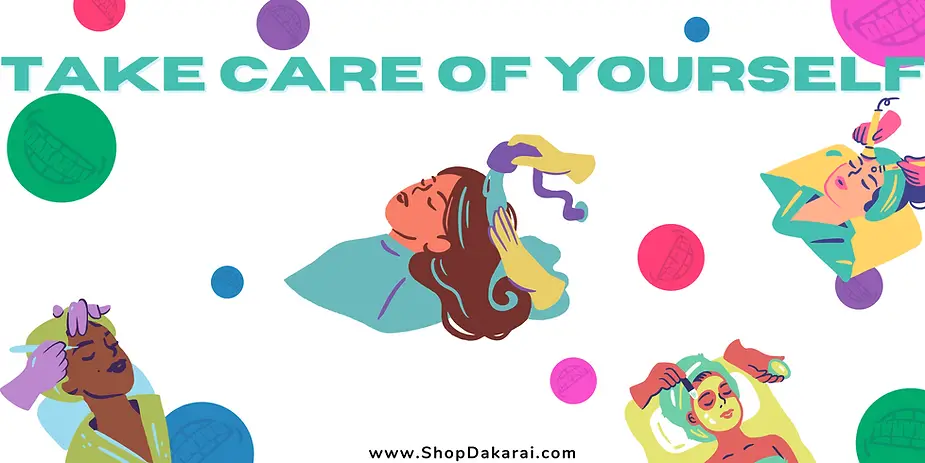
It’s incredible how much of a difference a shower or proper hygiene can make in your feelings of self-confidence.
Your self-image can turn your mood around completely by simply By dressing nicely, you’ll be more presentable and ready to tackle your next challenge.
We’ve all experienced times when taking care of oneself requires more work than just the maintenance needed to keep one’s performance at a high level.
But taking good care of yourself is essential. to boost your confidence.
People who care for themselves find that their physical, spiritual, and emotional health improves.
if you’re looking for ways to enhance your self-care. Take a look at the “11 Best Ways To Help You Start A Self-Care Routine” guide for helpful tips and insights to get started.
Live Healthily
Eat healthy foods, get enough sleep, exercise regularly, and avoid drugs and alcohol. Take care of your health and control your stress.
Practice Good Hygiene
In addition to lowering your risk of getting sick, maintaining good hygiene also helps you feel better about yourself and how others perceive you.
See Friends
to build your feeling of belonging. Consider joining a support group of like-minded people to make new friends.
Do Something You Enjoy
Every day is fun for you. Dancing, watching a favorite TV show, gardening, creating art,
or reading are a few examples of what that might mean for you.
16 Ways To Do What You Love And Love What You Do will significantly assist you in selecting the proper habits for your needs.
Find Ways To Relax
such as yoga, meditation, massages, baths, and nature walks.
Use Affirmations And Quotes
Positively creating intentions for your life is a great way to boost confidence.
The words that you say out loud to yourself hold a significant impact on our lives.
We can all relate to the feeling of carrying a heavy burden that makes it difficult to express one’s true self.
Using quotes or affirmations will allow you to feel happy with yourself and where you’re at in life.
But many affirmations help boost confidence, so I researched and made a small list of my favorites.
- I am a valuable human being.
- I appreciate who I am.
- My future is bright.
- I deserve to relax.
- I deserve to be happy.
- I can overcome every obstacle that comes my way.
- I believe in my abilities.
- Every challenge I overcome is a success.
- I have everything I need for success.
- I am stronger than my fears.
- It’s okay to leave my comfort zone.
- Every challenge is an opportunity to grow.
- I am grateful for my journey.
- I am stronger than I think.
- My happiness and well-being are important.
